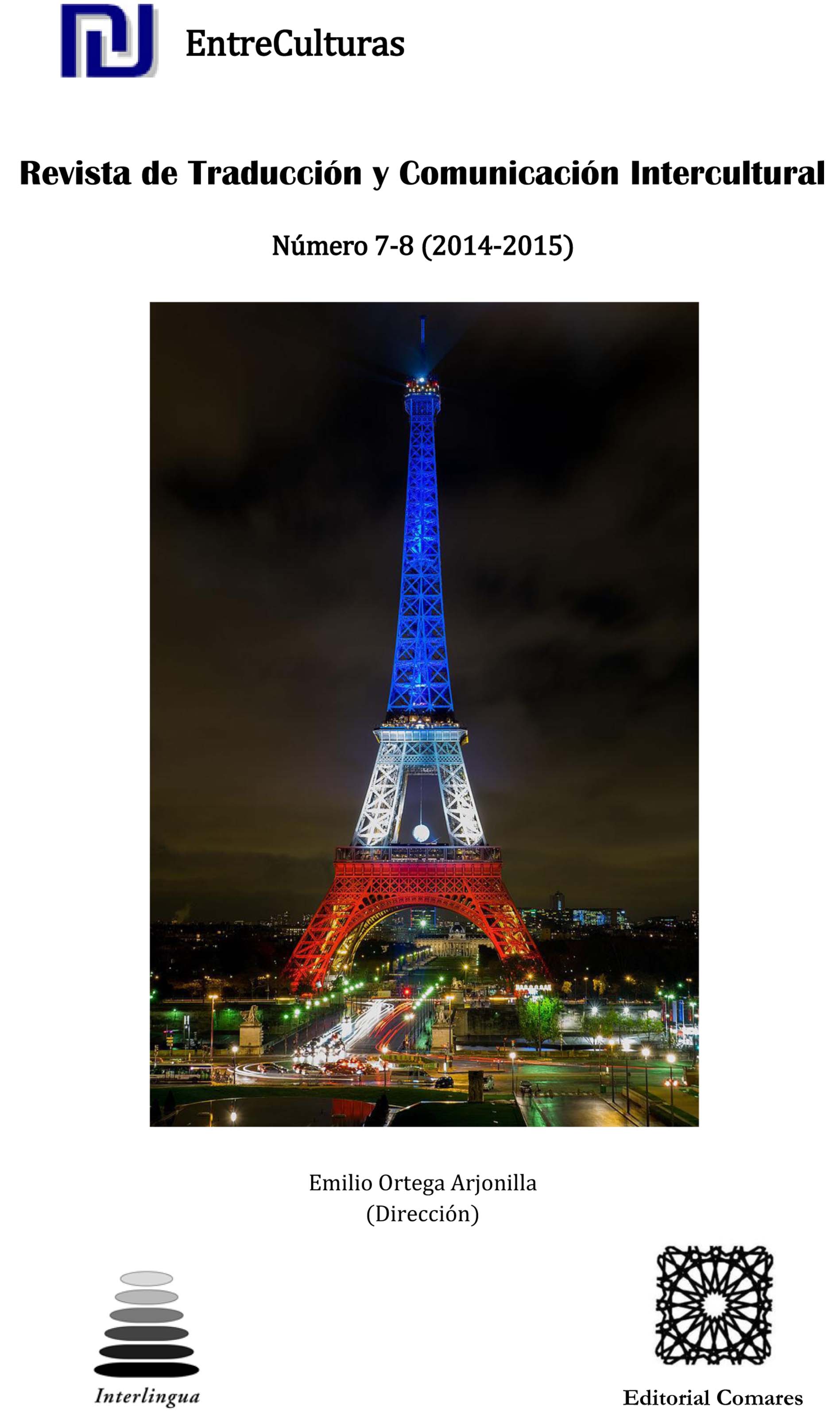LA TRADUCCIÓN DE LOS ELEMENTOS FRASEOLÓGICOS EN EL DOBLAJE ITALIANO Y ESPAÑOL DE UNA SERIE POLICIACA NORTEAMERICANA. ESTUDIO DE CASO: NCIS
DOI:
https://doi.org/10.24310/Entreculturasertci.vi7-8.11369Keywords:
Dubbing, idioms, case study, Italian, Spanish, NCISAbstract
In the wide range of problems that translation offers, idioms play a relevant role and always cause misunderstandings and problems. This difficulty is amplified in the dubbing because this translation is bound to a series of restrictions and it must respect the original’s time, image and space. In this article, we focus on the case study of idioms used in the American crime series NCIS. By comparing the original text to its Italian and Spanish dubbing, we draw conclusions about dubbing trends and techniques of the translation of idioms.
Downloads
Metrics
References
Antonini, Rachele (2009). «The perception of dubbed cultural references in Italy». En inTRAlinea, vol. 11. En línea: www.intralinea.org/archive/article/1651.
Cambridge Dictionaries Online. En línea: dictionary.cambridge.org.
Chan, Vera (2013). «NCIS: The No. 1 TV Show That Nobody Talks About». En Yahoo TV. En línea: tv.yahoo.com/news/-ncis---the-no--1-tv-show-that-nobody-talks-about- 212247183.html.
Chaume, Frederic (2012). Audiovisual translation: Dubbing. Manchester, St. Jerome Publishing.
Corpas Pastor, Gloria (1996). Manual de fraseología española. Madrid, Gredos.
De Mauro, Tullio (2005). «Come parlano gli italiani». En Quaderns d’Italià, no. 10, 133-148. En línea: www.raco.cat/index.php/QuadernsItalia/article/view/26334.
DRAE. Diccionario de la Real Academia Española. En línea: lema.rae.es/drae.
Eco, Umberto (2008). Decir casi lo mismo: la traducción como experiencia. (Traducción de Helena Lozano Miralles). Barcelona, Lumen.
Heacock, Paul (2003). Cambridge Dictionary of American Idioms. Cambridge, Cambridge University Press.
Martínez Sierra, Juan José (2004). Estudio descriptvo y discursivo de la traducción del humor en textos audiovisuales. El caso de Los Simpsons. Tesis doctoral. Disponible en línea: www.tdx.cat/bitstream/handle/10803/10566/martinez.pdf?sequence=1.
Mayoral, Roberto, Dorothy Kelly y Natividad Gallardo (1988). «Concept of constrained Translation. Non-Linguistic Perspective of Translation». En Meta: journal des traducteurs, vol. 33, no. 3, 356-367. PAOLINELLI, Mario y Eleonora DI FORTUNATO (2005): Tradurre per il doppiaggio. La trasposizione linguistica dell’audiovisivo: teoria e pratica di un’arte imperfetta.
Milano, Ulrico Hoepli Editore. RAFFAELLI, Sergio (2004): «L’italiano dei film doppiati» en Peron,
Gianfelice (ed.): Premio Città di Monselice per la traduzione letteraria e scientifica.
Monselice (Padua): Il Poligrafo, 63-73. ROSSI, Fabio (2006): «Il “doppiaggese”». En Il linguaggio cinematografico,
Roma, Aracne editrice, 265-344. Treccani Vocabolario. En línea: www.treccani.it/vocabolario.
Downloads
Published
How to Cite
Issue
Section
License
All contents published in Entre culturas. Revista de traducción y comunicación intercultural are protected under the Creative Commons Attribution-NonCommercial-ShareAlike 4.0 International (CC BY-NC-SA 4.0) license. All about this license is available in the following link: <http://creativecommons.org/licenses/by-nc-sa/4.0>
Users can copy, use, redistribute, share and exhibit publicly as long as:
- The original source and authorship of the material are cited (Journal, Publisher and URL of the work).
- It is not used for comercial purposes.
- The existence of the license and its especifications are mentioned.
There are two sets of authors’ rights: moral and property rights. Moral rights are perpetual prerogatives, unrenounceable, not-transferable, unalienable, imprescriptible and inembargable. According to authors’ rights legislation, Entreculturas. Revista de traducción y comunicación intercultural recognizes and respects authors moral rights, as well as the ownership of property rights, which will be transferred to University of Malaga in open access. The property rights are referred to the benefits that are gained by the use or the dissemination of works. Entreculturas. Revista de traducción y comunicación intercultural is published in an open access form and it is exclusively licenced by any means for doing or authorising distribution, dissemination, reproduction, , adaptation, translation or arrangement of works.
Authors are responsable for obtaining the necessary permission to use copyrighted images.





7.png)
